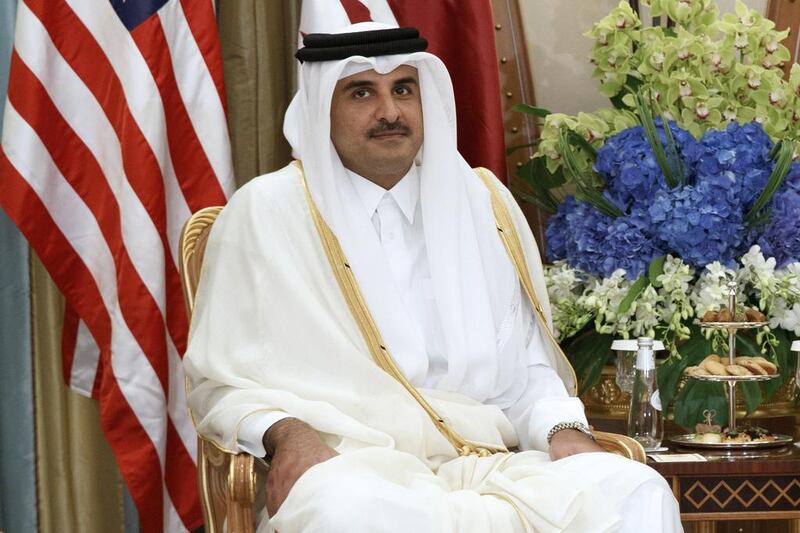RIYADH // Qatar’s state news agency on Wednesday claimed that its website and Twitter account had been hacked and that comments by the emir criticising aspects of US and Arab Gulf foreign policy towards Iran had been faked, causing confusion in Gulf states.
On Tuesday night, a story published by the Qatar News Agency said Sheikh Tamim Bin Hamad Al Thani, the country’s emir, had addressed a military graduation ceremony that day in which he criticised the aggressive rhetoric aimed at Iran by the Gulf and US during president Donald Trump’s trip to Riyadh.
Qatar on Wednesday attributed the stories to hackers, claiming that its state news agency and associated Twitter account had been compromised and that the stories had been fake.
“The Qatar News Agency … website has been hacked by an unknown entity,” the government communications office said. “A false statement attributed to His Highness has been published.”
There has been no comment from the UAE or Saudi Arabia.
The QNA report quoted the Qatari emir saying there were “tensions” with the Trump administration and described Iran as an “Islamic power,” Al Arabiya reported.
“There is no wisdom in harbouring hostility toward Iran,” he said, according to the removed QNA report, an opinion clearly out of step with Gulf attempts to contain Iran’s actions in Yemen, Syria and Lebanon.
The emir also said relations with Israel are “good,” and that Hamas is the official representative of Palestinians. Hamas is considered a terrorist organisation by the US among others.
The emir also complained of an “unjust campaign” to link Qatar to terrorism, which was timed to coincide with Mr Trump’s visit to Riyadh at the weekend.
Saudi Arabia, the UAE and Bahrain withdrew their ambassadors from Doha in 2014 after disagreements over Qatar’s support for the Muslim Brotherhood boiled over.
After Mr Trump’s Riyadh summit, the kingdom and Washington are set to take a much harder line on Tehran and its regional policies. Qatar is wary of Iran, but is not aligned with Saudi Arabia and the UAE on the issue, in part because of a shared major gasfield. Doha, which has long sought to remain independent of its larger neighbour’s foreign policy preferences, is probably less enthusiastic about greater hostility.
The White House, which has also taken a much more black-and-white view of political Islamists than its predecessor, has emboldened voices in the US capital critical of Qatar’s ties to Islamist militant groups, like Hamas in Palestine and a number of actors in Syria. After the Riyadh summit, where greater counter-extremism cooperation was a focus, Saudi may be pushing Doha harder to end its support for such groups.
While Abu Dhabi and Riyadh now to a greater degree stand to see a strengthening of ties with the White House, Qatar may find itself under pressure from a once reliable partner.
foreign.desk@thenational.ae





